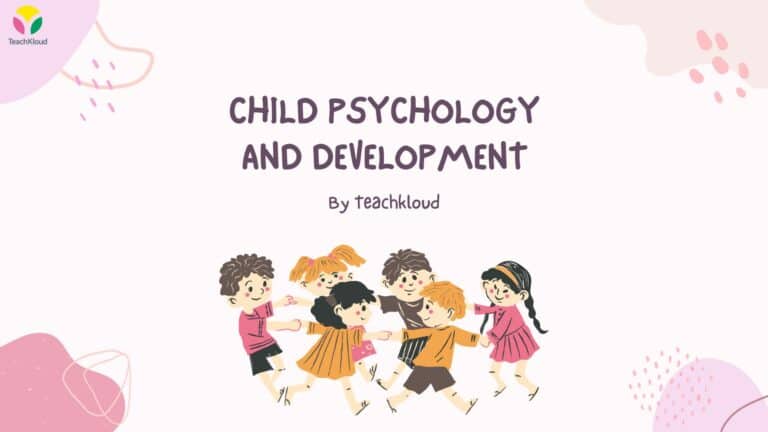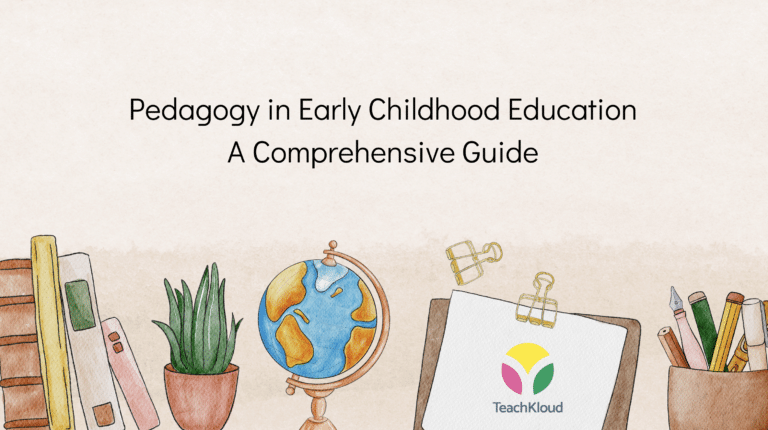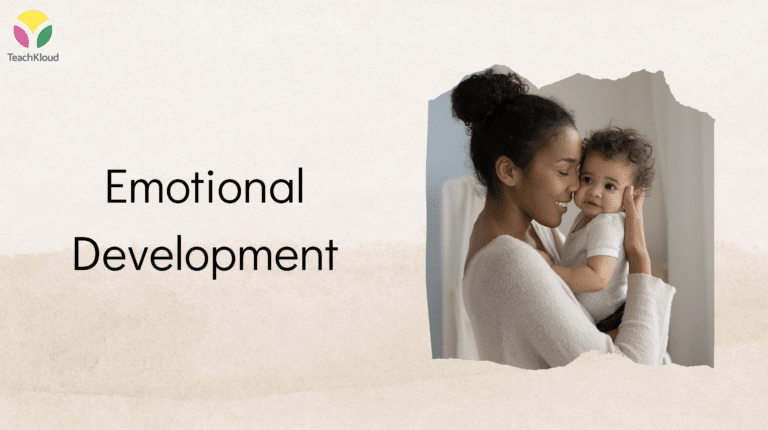You may not know it, but your parenting style can have a profound influence on your child’s development, bearing implications which can last into a child’s adulthood.
There are primarily four key parenting styles, each with its unique characteristics and potential implications on a child’s behaviour and development. These styles include authoritative, authoritarian, permissive, and uninvolved or neglectful parenting. We will also discuss lesser known styles: Helicopter and Tiger parenting.
Authoritarian Parenting: Strict Rules and High Expectations
If you’ve come across the concept of Authoritarian Parenting, you may already be familiar with its key features. This style of parenting is characterised by a strict set of rules laid down by the parents, which children are expected to abide by without question. An authoritarian parent sets high standards and expects their children to meet them without making room for explanations or disagreements.
For example, a child of authoritarian parents might have to follow a rigorous and fixed daily routine, comprising hours dedicated to academic study, physical activity, and even rest. These parents have preset ideas about what is right or wrong for the child, and rarely encourage open communication and emotional expression.
This parenting approach might sound like it promotes discipline and responsibility, right? Well, it’s not altogether clear-cut. Although children of authoritarian parents can excel in certain areas, research suggests there might also be drawbacks.
Diana Baumrind in her research paper “Authoritative Parenting Revisited: History and Current Status” indicates that children who grow up under authoritarian parenting may become obedient and proficient but rank lower in happiness, social competence, and self-esteem.
Another study by Kim, Nancy Darling, and Laurence Steinberg titled “Early Adolescent’s Perceptions of Their Mother’s Parenting Style: Relations with Mother’s, Father’s, and Adolescents’ Perception in Three Family Contexts” suggests that such children could potentially struggle with peer relationships and show signs of lower academic performance, compared to their counterparts raised under authoritative parenting.
It’s essential to understand that while authoritarian parenting promotes respect for authority and discipline, it might not necessarily foster a sense of independence, emotional understanding, and flexibility. This stark reality highlights why it’s crucial to balance firmness and nurturing warmth, responsiveness and demand, discipline and understanding while raising children.
Remember, each child is unique, indicating that what works for one might not be the best approach for another. Thus, it’s imperative for parents to be flexible, adaptable, and understanding to mould their parenting styles to what fits best for their children’s overall wellbeing and growth. The cultural values in which the child grows up in, can also affect the parenting style, as well as the child’s response to the parenting relationship. “For example, different parenting cognitions and practices may serve the same function in different cultural contexts. For example, an authoritative parenting style (high warmth, high control) leads to positive outcomes in European American school children, whereas an authoritarian parenting style (low warmth, high control) leads to positive outcomes in African American and Hong Kong Chinese school children” (Leung, Lau, & Lam, 1998, cited in Bornstein, 2012).
Further Reading
- Baumrind, D. (1991). The Parenting Style and Dimensions Questionnaire helps in understanding this parenting style better.
- Kim, K., Nancy Darling, and Laurence Steinberg give deep insights in their study on authoritarian parenting.
Permissive Parenting: Freedom and Lack of Discipline
When it comes to talking about the permissive parenting style, you might be familiar with the notion of granting children a large degree of freedom while applying minimal discipline. However, what does this approach mean in practical terms, and how could it impact a child’s development?
Permissive parents often consider themselves as more of a friend than a parental figure to their children. They tend to avoid confrontations and discipline, allowing thier children to make decisions independently, sometimes beyond their age-appropriate levels. This parenting style is characterised by high responsiveness but low demands.
Manifestations of Permissive Parenting
Telltale signs of permissive parenting include seldom setting rules or guidelines for children. If any rules exist, they are typically inconsistent and poorly enforced. As a result, children under permissive parenting may lack a clear understanding of expected behaviours and boundaries.
Permissive parents may also have a tendency to indulge their children’s requests, rarely saying ‘no’ and often yielding under pressure. They might fulfil these demands in an effort to avoid conflict or out of an intention to provide their children with all they desire.
Impact on Children
What effect does permissive parenting have on the children? The answer varies significantly, often depending on the individual child’s temperament and other environmental/cultural factors. However, research suggests certain general trends.
Children brought up by permissive parents tend to struggle with self-discipline and self-control, given the lack of firm boundaries in their home environment. They may also exhibit lower performance in school and a higher risk of health concerns such as obesity, due to unrestricted access to unhealthy foods.
On the flip side, children from permissive households often display high levels of creativity and self-confidence, flourishing in an environment where their ideas and opinions are valued and respected. If you are enjoying this, you will love our video masterclass on guiding positive behaviour in children. Click here to watch!
Notable Research and Studies
In the world of developmental psychology, studies conducted on permissive parents and their offspring offer interesting insights. Psychologists Maccoby and Martin, in their 1983 journal, classify permissive parenting as indulgent parenting, and highlight how children raised under this parenting style often struggle with managing their emotions and behaviours.
A more recent study conducted by Taylor et.al (2020), found that permissive parenting tends to produce adolescents with higher levels of self-esteem and lower levels of depression, but also higher aggressiveness and lower academic success.
Like any other parenting style, permissive parenting comes with its own set of strengths and weaknesses. It all boils down to finding a balance and adapting a style that caters to the child’s unique needs and potential.
Authoritative Parenting: Balance of Rules and Warmth
These parents lay down clear expectations for their children, yet still offer plenty of room for them to explore and be independent. This might have you wondering, how do they strike this balance so masterfully? Well, it’s likely that they’re practising a style of parenting often referred to as the ‘authoritative’ approach.
Defining Authoritative Parenting
First identified by developmental psychologist Diana Baumrind in the 1960s, authoritative parenting is seen as an approach that is both responsive and demanding. Parents adopting this method set high standards, but they’re also fully attentive to their children’s emotional needs.
Key Features of Authoritative Parenting
- Expectations and Consequences: rules are clearly laid out, alongside the consequences of not following them. However, punishment is not arbitrary or harsh but is used as a tool for teaching responsibility and acknowledging poor behaviour.
- Healthy Communication: Authoritative parents engage their children in open and age-appropriate conversations about rules, discipline, and expectations.
- Problem-Solving Approach: These parents often empower their children to solve problems independently, preparing them for future challenges.
- Nurturing Environment: Despite the firm boundaries in place, there is a strong emphasis on warmth, love, support, and respect in the family environment.
Research Findings on Authoritative Parenting
A plethora of research has supported the effectiveness of this parenting method. For instance, an influential study by Baumrind (1966) found that children from authoritative households are more socially competent, responsible, and autonomous.
“When parents are both responsive and demanding, children tend to be responsible, self-reliant, and respectful of authority.” – Diana Baumrind
These findings do not suggest that this style is the ‘best’ or ‘only’ way to parent. Each family is unique, with its dynamics, values, and needs. However, understanding the characteristics and potential outcomes associated with each parenting style, including the authoritative approach, can help guide and inform our parenting journey. Here are some ways that authoritative parents do this:
Recognise and Respect Your Child’s Autonomy
Authoritative parents encourage their children’s independence. They respect their child’s feasibility to take decisions, albeit within certain boundaries. Reinforce decision-making capacity in your child by presenting them with choices and respecting their selections.
Develop open communication lines
Open and honest communication forms the crux of the authoritative parenting style. Strive to foster a trusting bond with your child where they can freely express their thoughts and feelings. Practice active listening; this means giving your undivided attention when they speak and responding with understanding and empathy.
Nurture emotional intelligence
Authoritative parents never dismiss their child’s feelings. Instead, they validate and help them understand these feelings. Knowledge of emotions aids in making judicious choices and building healthier relationships. Cultivate emotional intelligence by discussing feelings at home, teaching emotion vocabulary, and demonstrating empathy.
Discipline with love and logic
Establish clear, age-appropriate boundaries and implement them with compassion. Children are more likely to abide by rules when they comprehend the reasoning behind them. Make sure consequences are logical—related to the child’s action—and offer them an opportunity to learn and grow.
Engage in positive reinforcement
Encourage desirable behaviours by acknowledging and rewarding them. Also known as positive reinforcement, this strategy boosts your child’s self-esteem and promotes repeat behaviour. The reward doesn’t have to be extravagant; verbal praises suffice and can go a long way in building confidence.
Shifting to an authoritative parenting style may require time and effort, but the rewards are immense. Authoritative parents raise children with balanced social, emotional and cognitive skills. They’re adept at managing stress and demonstrating resilience, setting them up for happier, healthier futures.
Uninvolved Parenting: Lack of Involvement and Attention
Imagine yourself as a child where no one takes notice of your accomplishments, struggles, or even your basic needs. This is often the reality for children raised in a neglectful or uninvolved parenting style.
Characterising Neglectful Parenting
The essence of neglectful parenting can be viewed as passive and indifferent. This approach is defined by the parent’s general lack of response or attention towards the child’s psychological and physical needs. Parents who employ this style often only provide the bare necessities and may struggle with their own mental health issues, substance abuse or other personal problems. (Brown, Miller & Magenta 2003)
Negative Effects of Neglectful Parenting
Neglectful parenting can lead to numerous negative effects on a child’s development. These children may find it challenging to form close relationships due to their fear of abandonment or being ignored. Moreover, they might also demonstrate impaired social competence, proclivity to substance abuse, and various behaviour problems. (Deater-Deckard & Dodge, 2001)
Highlighting Case Studies on Neglectful Parenting
In furthering our understanding of neglectful parenting, an important case study to discuss is that by Margaret Gatz et al. (1995), where it was observed that children coming from neglectful environments often displayed a high degree of anxiety and depression.
A research study by Susanne Johnson and Lisa Cohen (2011), also affirms the adverse effects of neglectful parenting. In this study, it was reported that these children often possess low self-esteem and suffer from antisocial and aggressive behaviours, further highlighting the need for positive engagement and care in a child’s upbringing. Interested in a short masterclass video on effective tips on guiding children’s behaviour? Click here. Free to watch and optional certificate available to purchase.
Preventing Neglectful Parenting
The cycle of neglectful parenting can be broken with awareness, education, and support. These crucial steps may involve personal therapy, seeking help from social services, parenting courses or simply reaching out to friends and family for assistance.
We must remember, as parents, our role isn’t merely about providing for the child’s basic needs, but it’s also about nurturing their emotional development, guiding them through challenges and helping shape them into a confident, well-adjusted individuals. If you’d like to learn more about trauma in childhood and how educators/allied professionals can help children heal with sensitive practices, click here to watch our masterclass.
Helicopter Parenting: Overprotective and Micromanaging
Ever feel like you’re under constant surveillance or being excessively protected? This feeling, familiar to many children, is likely due to parent who’s a ‘helicopter parent’. This is a form of parenting characterised by an overbearing nature and an excessively careful approach.
Helicopter parenting is a term coined by child development researchers Foster Cline and Jim Fay. It describes parents who hover over their children, swooping down at any sign of trouble or discomfort, hence the term ‘helicopter’. These parents tend to micromanage their children’s lives, making choices on their behalf, even when they are capable of making them independently.
Signs of Helicopter Parenting
A helicopter parent may display the following:
- Excessive involvement: You find yourself far too involved in your child’s life for their age or maturity level. For example, negotiating with teachers on their behalf.
- Fear of failure: You go to great lengths to prevent your child from experiencing disappointment or failure.
- Own sense of worth tied to child’s success: Your self-esteem heavily depends on your child’s accomplishments.
- Overly protective: You protect your child from any perceived harm or discomfort, even if there’s a low chance of actual danger.
Impact of Helicopter Parenting on Children
While helicopter parenting can be borne out of pure love and concern for one’s child, it may have unintentional negative effects. These include:
- Lower self-esteem and confidence due to dependence on parent’s validation.
- Higher levels of anxiety and stress, as children fear meeting high standards and making mistakes.
- Poorer decision-making skills, since parents often make decisions for their child.
- Lack of resilience, as children do not learn how to bounce back from failure and disappointment.
In a study from the University of Minnesota, it was discovered that children with helicopter parents tend to have lower grades, due to the high levels of stress they experience.
Moving away from Helicopter Parenting
Here are some steps that can counterbalance the effects of helicopter parenting:
- Allow your child to learn from their mistakes: It’s okay to let your child fail sometimes, it teaches resilience and problem-solving skills.
- Foster independence and decision-making skills: Involve your child in decisions that affect them. Appropriate for their age, of course.
- Regulate your emotional involvement: Separate your feelings from those of your child and remember that their struggles are different from yours.
- Nurture your child’s passions: Encourage your child to explore their interests, even if they deviate from what you had envisioned.
By learning to take a step back, parents can enable their children to grow into self-assured and resilient individuals. Remember, a little bit of independence can do wonders for a child’s growth and development.
Tiger Parenting: High Expectations and Push for Success
As you delve further into the world of parenting styles, so too have you come upon the concept of ‘Tiger parenting’. A term popularised by Amy Chua in her book “Battle Hymn of the Tiger Mother”, Tiger parenting is characterised by high expectations and an aggressive push for success. But what does this really mean and how does it translate into practice? Let’s explore this a bit more.
Defining Tiger Parenting
Fundamentally, Tiger parenting is a term commonly associated with parents who push their children to attain high levels of academic achievement or success in high-status extracurricular activities, all while demanding obedience and respect. Parents taking up this approach often exert an exceptional level of control over their child’s life, setting high yet clear expectations.
The Implications of this Parenting Style
The high-pressure nature of Tiger parenting may have several consequences for children. While some children may excel academically and secure impressive resumés due to their parents’ exacting standards, others may feel overly pressurised, resulting in high levels of stress, anxiety and poor mental health.
Investigations into Tiger Parenting
Multiple studies have examined the effects of Tiger parenting. For instance, a study by Kim, Wang, Orozco-Lapray, Shen, & Murtuza (2013) found that Tiger parenting can result in negative outcomes for children, including lower academic achievement and heightened psychological maladjustment. However, it’s crucial not to generalise – as with any parenting style, outcomes can vary significantly depending on numerous factors, including the child’s personality, resilience, and their individual reactions to pressure.
Kim, S. Y., Wang, Y., Orozco-Lapray, D., Shen, Y., & Murtuza, M. (2013). Does “tiger parenting” exist? Parenting profiles of Chinese Americans and adolescent developmental outcomes. Asian American Journal of Psychology, 4(1).
Parenting styles, from authoritative to permissive, authoritarian to neglectful, helicopter to tiger, greatly influence a child’s growth and the adult they eventually become. When caring for children, we can be guided by an important question, “what is in the best interest of the child?”




